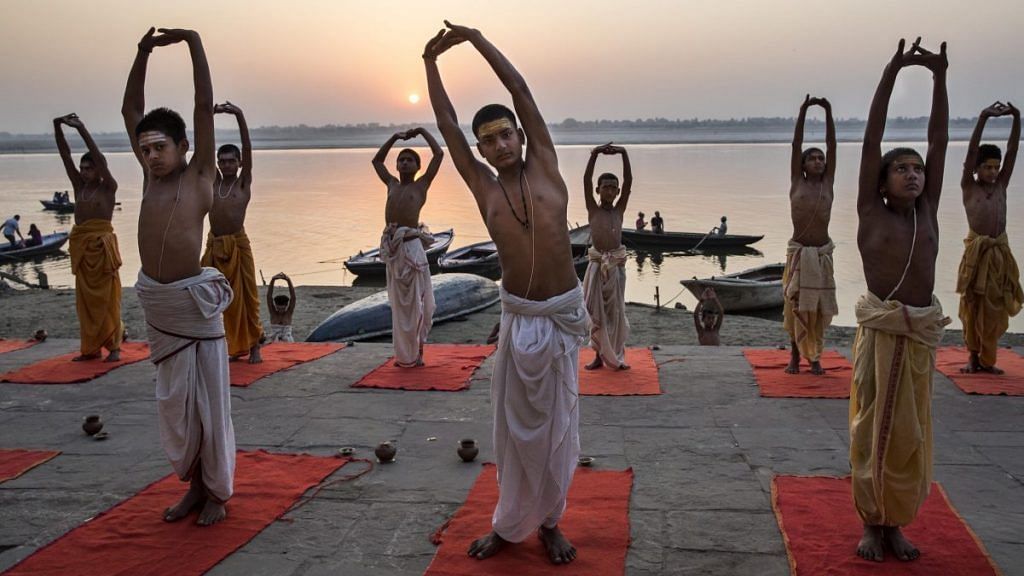A lot of parents, in trying to raise kids who are caste-free, end up raising kids who are caste-blind.
‘Man hands on misery to man.
It deepens like a coastal shelf.’
This is my favourite Philip Larkin poem, called ‘This Be The Verse’, because it erases the idea of equating perfection with parenthood, and unmasks the very uncomfortable idea that parents do mess up sometimes, perhaps unwittingly. They do so and look at you indignantly if you ever point it out.
As conversations about universities often do, one I was recently a part of had a friend talking about how, according to him, reservations were “OK for the poor people, but why does someone who’s rich need a quota?” Another told me about his ‘thread ceremony’, and how he found the whole thing absurd but played along. Both these people are educated, aware folks from fairly liberal families. Both tacked on a similar argument to these conversations: “You know I’m not casteist! It’s just a thing we do. Not everything needs to mean what it once did. My parents never even talked about caste at home when we were growing up.”
But that, unfortunately, is the problem.
A lot of parents, in trying to raise kids who are caste-free, end up raising kids who are caste-blind. They work hard to raise kids who are not casteist, sexist, or propagators of systems that create standards of inequality.
They do this by a simple mantra that usually boils down to something like this: “If we just don’t talk about caste, how can my child be casteist? We are an upper caste family and my child knows that, but not about the privileges it brings. Caste isn’t really a problem in their lives anymore.”
Unfortunately, they’re wrong. Caste is still prevalent in India — and not just in the villages. We’ve deluded ourselves into believing that caste is an ‘othered’ problem, one that is resolved by education alone. The caste problem, in their minds, is arbitrarily relegated to those ‘uneducated villagers’. Caste is still killing people, still marginalising students, and still depriving them of basic human rights.
This complicit silence, stemming from the belief that we’re a post-caste society, leads to an entire bunch of privileged kids who are blinkered to what’s happening around them.
Education, the apparent panacea, lets them down too. Our textbooks show caste as a thing of the past, as something that happens in places that we don’t belong to. This feeds into the sense of dissonance urban India has with its realities, with perceptions further fuelled by an illusion of progressiveness.
This status quo is maintained by the role ‘obedience’ plays in Indian homes. Questions, and often curiosity, are an illicit indulgence.
Urban expressions of caste identity can seem very innocuous, but point to a systematic rot that has been allowed to fester. Cars in north India are often emblazoned with words like ‘jatt da puttar’. The words ‘Rajput ke…’ were uttered in ‘Padmavaat’ more times than the storyline itself shone through.
Social media bios that read ‘proud Brahmin’ next to ‘engineer, MBA, ManU’ abound. All these stem from smaller aggressions we internalise at home — separate utensils for the house help under the garb of ‘cleanliness’. The very Indian (read casteist) concept of jhootha, which doesn’t even have an accurate translation to English. The way buildings have two lifts, and how aunties will glare at you if you end up using the ‘other’ one around them.
This may seem like a disparate list of things cobbled together, but they all have the thread of casteism weaving through them. We may feel like we’ve evolved over time, but instead of leaving caste in the past, we’ve allowed it to evolve with us.
To claim ignorance as a shield against the ‘bad’ things is, to put it gently, stupid. To shirk from difficult conversations with your children doesn’t just leave them unequipped, but also remarkably lacking in self-reflection and social awareness. These conversations become harder the deeper you dig, because they require you to confront biases and beliefs you internalised as truths all your life.
My generation is slowly finding itself in the role of aunts, uncles, and soon, parents. We have a chance to break this cycle and put our foot down and say no to symbols of oppression, and to the sanitisation of the same.
To try and assimilate these practices — like the ‘thread’ ceremony — and to make them benign, and ignore what they have stood for, is to absolve ourselves and our families of being complicit. We cannot spend time and effort adapting to structures that would be better done away with completely. To borrow from psychiatrist and philosopher Frantz Fanon, since oppression understands the language of violence and brute force, that’s how it must be dealt with too — completely and without mercy.
This will anger a lot of people, especially those who have spent generations benefitting, even if unconsciously, from the privileges they inherited. There’s a reason parents insist on traditions that reinforce caste hierarchies — it’s a marker of the intangible benefits they simply assume for their children.
I hope we learn how to question this. I hope we teach ourselves, and those we can teach, how to reward rebellion, how to reward a stirring against the status quo bequeathed to us. We need to learn how to create human beings outraged at the idea of the sheer inhumane ability of casteist discrimination, however seemingly benign. We need to create proactive people — not just obedient children.
I hope we learn how to, in simple words, piss people off. No revolution ever started with obedient people.
Harnidh Kaur is a poet and feminist.
